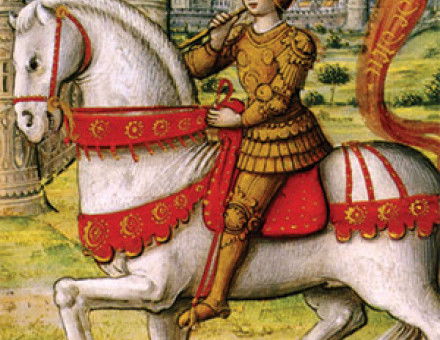Volume 8 Issue 9 September 1958
The achievements of the Meiji regime in transforming Japan into one of the most powerful of modern states are regarded as among the most remarkable events in history. But the restoration of the Emperor and the fall of the Shogun was brought about at the cost of a fierce domestic struggle.
The revolutionary upheaval that brought down Louis-Philippe swept into power a famous French Romantic poet. Gordon Wright describes how Lamartine acquitted himself with courage and energy; but his fall was as swift and sudden as his rise.
The myth of the “Dark Continent” has recently been exploded by archaeologists. A rich indigenous culture was established long before the coming of the white man. The memorials that it left behind are here described and appraised by Robert A. Kennedy.
Medical explanations of human character and conduct are by themselves (as William James pointed out) usually “destructive and insufficient.” It seems highly possible that Joan of Arc suffered from tuberculosis. But this analysis of her medical background, write John and Isobel-Ann Butterfield, does nothing to lessen our admiration for her heroic and inspired life.
Not until the Revolution had collapsed from within, and the quarrelsome heirs of the Long Parliament had forfeited the right to govern, was the way clear for the restoration of a Stuart sovereign. The return of the monarchy, writes Austin Woolrych, was welcomed with enthusiasm as an alternative to social anarchy.
Critics of Cromwell, both British and foreign, have long continued to “find what they were looking for” in the records of his career and character. Some have denounced him as a hypocritical tyrant; others have described him as the finest type of middle-class Englishman. Once at least, writes D.H. Pennington, he has been acclaimed as “the greatest Englishman of all time”.
With his “great and majestic deportment and comely presence Cromwell himself was fully equal to his new dignities as Lord Protector. Not so, writes C.V. Wedgwood, all the members of his household; his wife was accused of squalid parsimony, and his younger daughters of undue frivolity.



